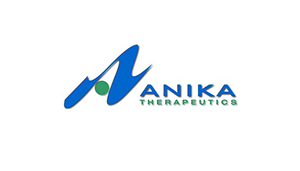 Shares in Anika Therapeutics (NSDQ:ANIK) fell today, even though the orthopedic medicines company beat expectations on Wall Street with its 4th quarter results.
Shares in Anika Therapeutics (NSDQ:ANIK) fell today, even though the orthopedic medicines company beat expectations on Wall Street with its 4th quarter results.
The Bedford, Mass.-based company posted profits of $8.1 million, or 54¢ per share, on sales of $28.7 million for the 3 months ended Dec. 31, for bottom-line loss of -26% on sales loss of -7% compared with the same period last year.
Adjusted to exclude 1-time items, earnings per share were 54¢, a penny ahead of consensus on The Street, where analysts were looking for sales of $27.8 million.
“Anika delivered another year of very strong growth, with 17% product revenue growth for the full year of 2016,” president & CEO Charles Sherwood said in prepared remarks. “We also submitted an IND application to the FDA to initiate an additional Phase III clinical trial of Cingal, and we received CE Mark approval for Orthovisc-T in the 4th quarter, paving the way for our next generation of growth drivers. We expect to commence the Cingal Phase III trial and launch Orthovisc-T in Europe in the first half of 2017. Our strategic objectives in 2017 are focused on global commercial expansion, pipeline advancement, infrastructure enhancements and strategic M&A to drive sustained growth and create value for patients and shareholders.”
Anika said it expects total revenue growth to be in the mid-teen percent range for 2017.
ANIK shares were trading at $48.87 apiece today in morning trading, down -6.4%.
In December, the company won CE Mark approval in the European Union for its Orthovisc-T injection. Anika’s treatment is indicated to relieve pain and restore function in tendons affected by tennis elbow, or chronic lateral epicondylosis.
The sodium hyaluronate injection promotes tendon gliding and repair at the site of the damaged tissue, according to Anika.
The company won CE Mark approval in the European Union for its Cingal drug-combo designed to treat osteoarthritis-related knee pain in March last year.
Cingal is a combined viscosupplement formulated with the company’s cross-linked sodium hyaluronate and triamcinolone hexacetonide, a steroid used to treat inflammation, Anika said.

